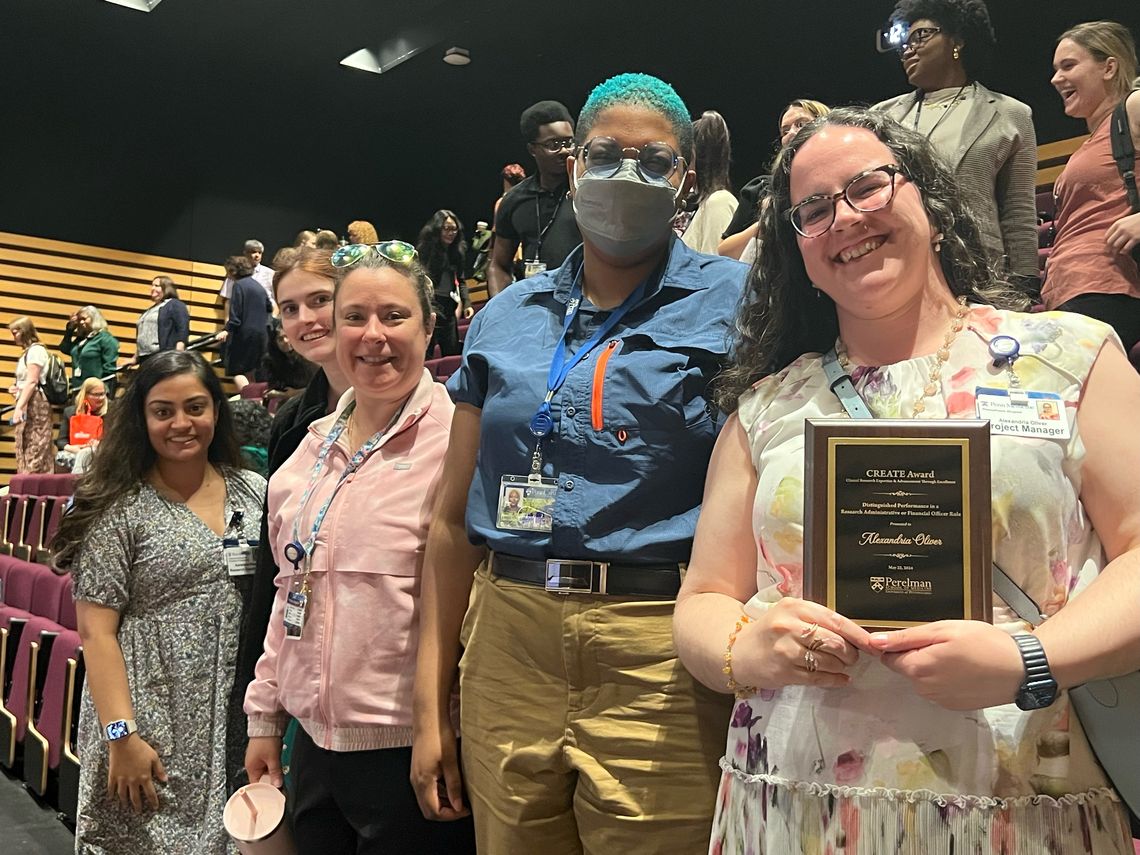Learn about research opportunities at PD&MDC
Research at PD&MDC
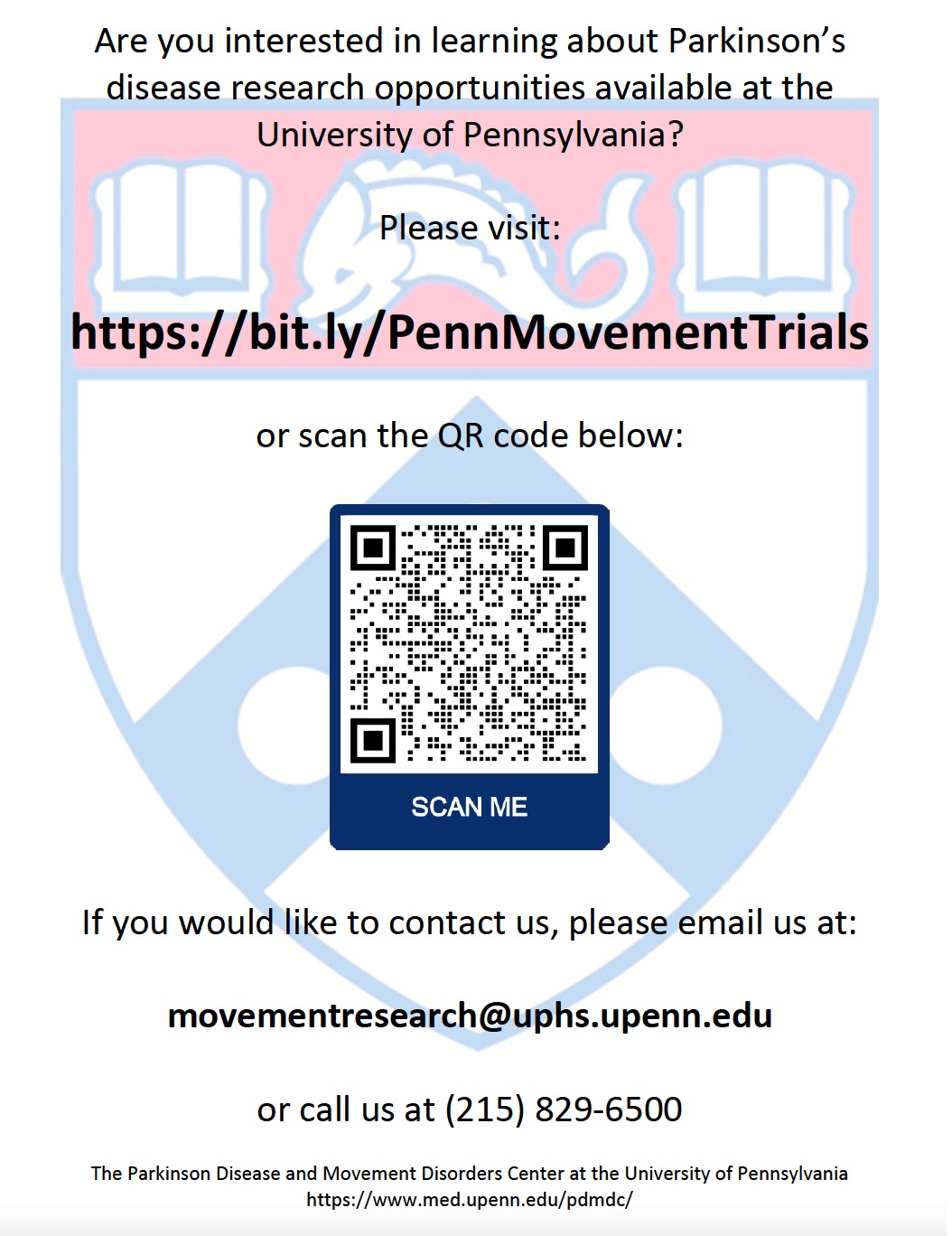
Research is vital to understanding the many facets of Movement Disorders, from symptoms and quality of life to treatment and care. Basic science research takes place at the lab, like the work of Dr. Alice Chen-Plotkin, who is a physician-scientist at our center. Observational studies may involve questionnaires about your experience, cognitive testing, or giving a blood sample for testing, while interventional studies, such as clinical trials, may involve testing a new drug to determine whether or not it could be a potential new treatment. Whether a research study is observational or interventional, it is an essential step in furthering advancements in treatments and improving the lives of the millions of people living with Parkinson disease. At any given moment at PDMDC, there are always several research studies going on, and many in the pipeline. We are constantly looking for volunteers like you to help us make a difference. We also welcome people without Parkinson disease to volunteer as a healthy control. If you are interested in or considering participating in a research study, please reach out to your neurologist so that we can find the best fit for you or email one of our research coordinators at movementresearch@uphs.upenn.edu.
Here is a testimonial from a research participant:
“I feel very fortunate that I was chosen for the Research Study Group last Summer. I've been taking the study drug "Apomorphine" and the results have been outstanding. It's helped with my confidence level for sure. The Research Study Group coordinator Ellen Rosen and Neurologist Dr. Deik are terrific to work with. “ ~Albert V.
To learn about research opportunities you may be eligible for, please click here, or see below:
- UPenn PET Imaging Studies
- For patients with PD, MSA, PSP, or healthy controls. This is a set of studies looking at developing new tracers to help identify and diagnose these diseases sooner.
- Studies for patients with Parkinson who have been diagnosed in the last 3 years, and are not currently taking any medication
- SPARX (Evaluating various levels of exercise as a way to slow PD progression)
- Studies for patients with Parkinson diagnosed more than 3 years ago
- For all patients with Parkinson
- PD Gene (Looking to create a genetic data and biorepository for PD research)
- For patients with atypical parkinsonian syndromes
- MASCOT (for patients with MSA <5 years)
- For patients with Parkinson who identify as African American
- Studies for patients with dystonia
- Dystonia Coalition - Natural history project
- Dystonia Coalition - Patient Centered Outcomes Project
Additional research opportunities may be available for patients with parkinsonian syndromes at the Penn Memory Center.
Clinical Trials Team
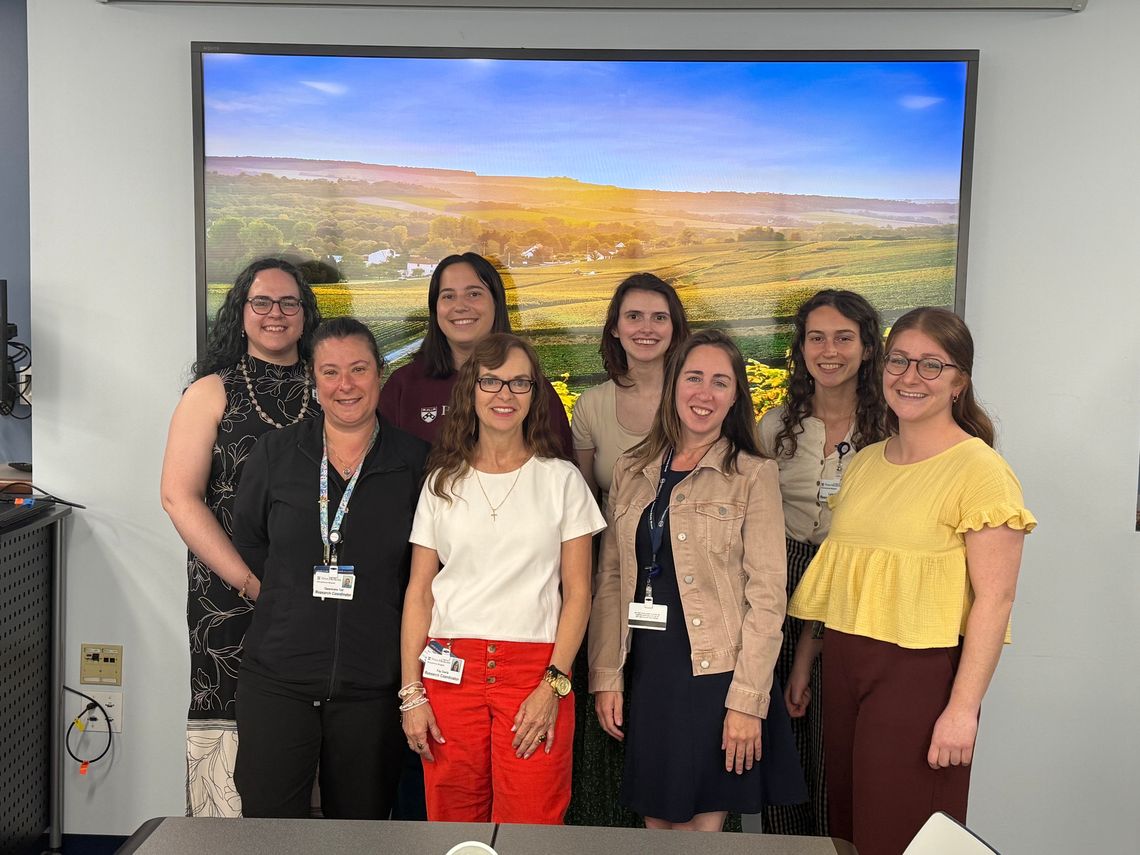
Research staff at the Spring 2025 workshop retreat.
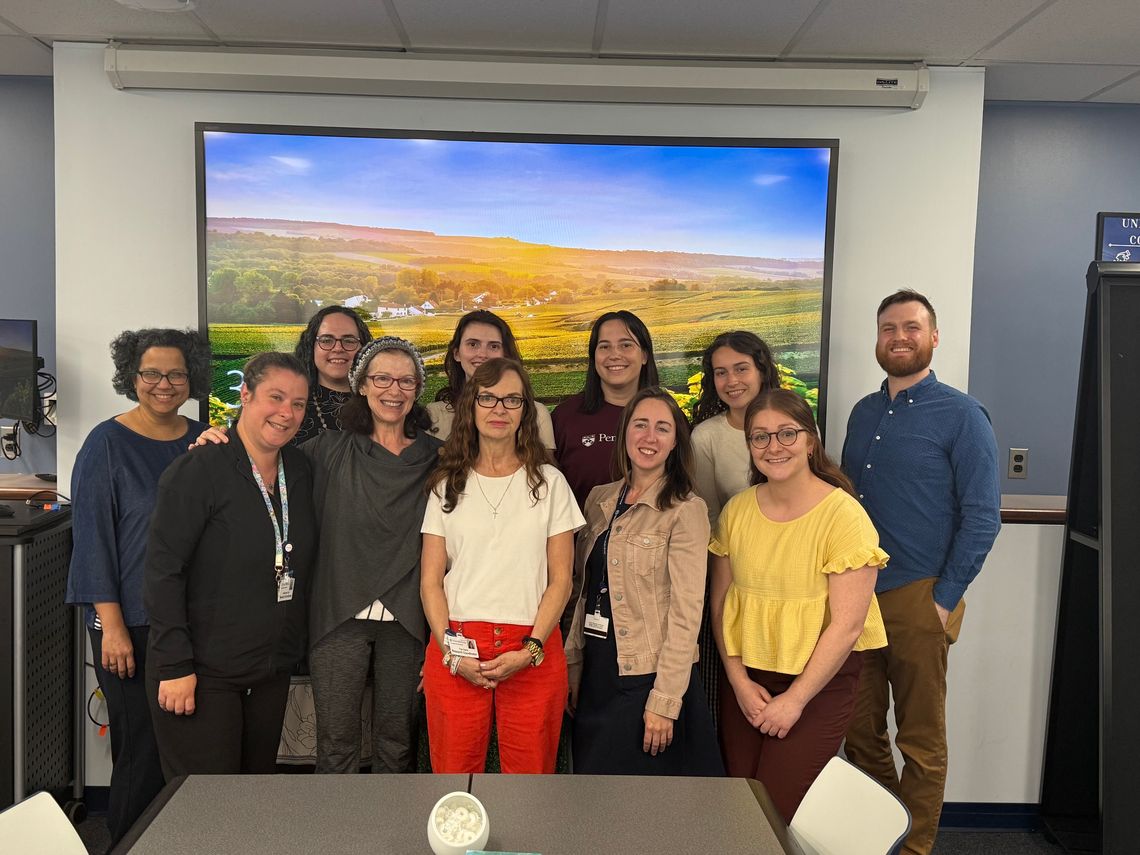
CRCs Lynn Eickholt (left) and Theodore Kapogiannis (right) presented posters on their research at the Health Equity Poster Session in April 2025.
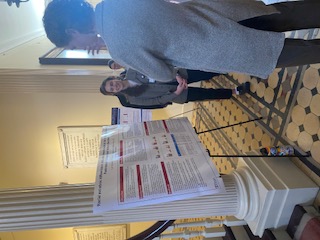
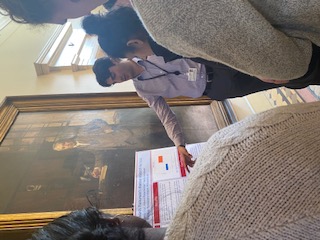
Our very own Alexandria Oliver (far right) was awarded a CREATE award for Excellence in Research in a manager role, of May 22, 2024!
